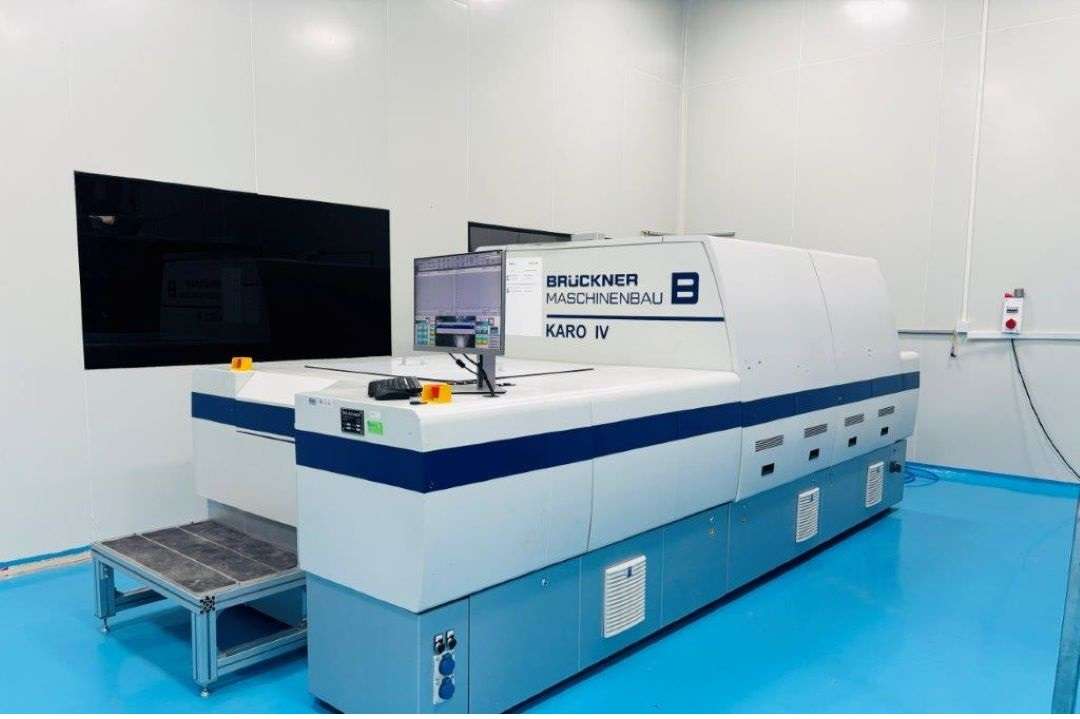Cosmo First Ltd, a key player in the specialty films sector, has announced the acquisition of the latest KARO®IV laboratory stretching system from Brückner Maschinenbau. This significant move marks a milestone in India’s drive to strengthen its research capabilities and reduce reliance on imported film technologies.
By adding this highly advanced lab-scale stretching unit to its R&D infrastructure, Cosmo First is now among a select group of global film manufacturers equipped to develop next-generation flexible packaging materials domestically. The initiative also aligns with the Government of India’s “Atmanirbhar Bharat” mission by fostering homegrown innovation in materials engineering.
The KARO®IV machine will dramatically shorten development cycles for specialty films, enabling cost-effective lab-scale trials prior to full-scale production. It supports both sequential and simultaneous film stretching—essential for precise product prototyping.
“This is a game-changer for us,” said Mr. Kulbhushan Malik, Business Head of Cosmo Films. “We now have the ability to test and fine-tune film properties much earlier in the development process, saving both time and resources. Beyond improving internal R&D, this also allows us to partner with universities and build technical talent in polymer sciences here in India.”
KARO®IV’s capabilities are extensive. With stretching ratios from 1.01 x 1.01 up to 10 x 10 and heating up to 400°C across three independently controlled zones, the equipment provides unmatched flexibility for film testing. It supports a wide array of materials such as BOPP, BOPET, and BOPA, offering fine control over stretching variables and high-precision data on film behavior under various conditions.
automated, programmable test cycles for streamlined operations, real-time monitoring of key parameters such as force, displacement, and temperature for precise data collection, and full compatibility with the development of sustainable and mono-material films, supporting the shift toward environmentally friendly packaging solutions.This upgrade positions Cosmo First—and by extension, India—to compete globally in specialty films, especially in recyclable and high-barrier packaging. With increasing pressure from both regulators and consumers to move toward sustainable materials, the ability to develop recyclable, mono-material solutions domestically is crucial.
Until now, most Indian packaging firms relied on full-scale production lines for product testing, which limited innovation due to the high costs and inflexibility. The KARO®IV closes a significant gap in the country’s innovation infrastructure by providing access to lab-scale testing that mimics real production conditions.
Cosmo First recently ramped up its BOPP film production capacity by approximately 40%, reaching 277,000 metric tons annually. The company’s latest investment in lab technology complements this growth by ensuring its new products meet both market demands and evolving sustainability standards.
With the KARO®IV, Cosmo First is well-positioned to develop recyclable films, explore new barrier technologies, and collaborate with global brands on next-gen packaging solutions. The investment also sets the stage for academic partnerships aimed at strengthening India’s footprint in advanced material sciences.







